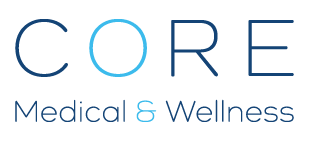
The Most Popular Treatments for Shoulder Pain… And What To Do If They Don’t Work
Share this Post
If you have shoulder pain, it’s probably a major factor in your life. Your shoulder is such a large joint, and it’s one that you use for virtually everything. So if you’re having discomfort there, it’s going to affect your work, sleep, leisure activities, and mood. Here are some popular treatments for shoulder pain, both at home and at the doctor’s office.
But what do you do if they fail to resolve your issue? There is a new way of treating shoulder pain that you should know about, and it doesn’t involve risky drugs or the hazards of undergoing surgery.
The Most Common Home Treatments for Shoulder Pain
Buying a new mattress or pillows
If your shoulder pain is caused by improper alignment or support when you sleep, changing your mattress and/or pillows may be a solution. It can also be helpful when rehabbing from a shoulder injury and you realize your current mattress or pillows are inadequate.
You need to be sure your sleep surface is firm enough for support but has some give to accommodate the points of your shoulders and hips. Your pillow should cradle your head and keep it in alignment with your spine.
If you’re a side sleeper, you may even want one of the latest pillows that have a tunnel for your arm to go through so it takes pressure off your shoulder. Otherwise, using a combination of a pillow under your head plus a body pillow next to you can help distribute your weight better while you sleep.
Exercise and stretching
If you have an acute shoulder injury (one that happened recently), exercise is probably out of the question. You need rest and perhaps even a sling to hold up your arm and protect your shoulder joint.
However, if you have chronic shoulder pain, sometimes exercise and stretching are appropriate. Exercise can strengthen the muscles around the shoulder and make the joint more stable. It can also preserve or improve range of motion to fight stiffness and lack of mobility.
It’s best to discuss your fitness regimen with a doctor or physical therapist if you have ongoing shoulder pain. You want to make sure you’re not making it worse or using improper form when you workout or stretch. If something hurts, don’t keep doing it! That’s a sign your shoulder is rebelling, and you could be causing yourself further injury.
Heat and cold therapy
Some folks get temporary relief from heat and cold therapy — temporary being the operative word if your shoulder pain is not from an acute injury. Cold reduces swelling, while heat brings muscle relaxation and helps with stiffness.
The biggest problem with applying heat or cold to the shoulder is, like the hip, the joint is fairly deep, and it can be hard to reach where the therapy is needed. They can also be hard to keep in place on the shoulder joint. Especially where applying warmth is concerned, you may find it easier to immerse yourself in a bath or hot tub than to use a heating pad.
Complementary medicine
Complementary medicine is a name for therapies that are used to supplement traditional medicine. They used to be considered unconventional and many stem from ancient Eastern medicine, including:
-
Yoga
-
Acupuncture
-
Massage therapy
-
Meditation
-
Tai chi
-
Oriental medicine
Nowadays, many of these treatment methods are at least partially covered by insurance. If not, you can find them in your community, and they don’t require a prescription. Although yoga and tai chi, as forms of exercise, can make permanent changes to the shoulder joint by building strength and flexibility, the other complementary medicine therapies can be good for reducing pain, but they are temporary measures.
Options for Shoulder Pain at the Doctor’s Office
Cortisone injections
If you consult your physician about chronic shoulder pain, you may be offered a cortisone injection. This can reduce swelling for several months at a time, making it a good short-term therapy while you work on more permanent solutions. It’s not an option for long-term pain relief, though, as it’s not advisable to get continued cortisone injections for years on end.
Over-the-counter medications
Your doctor may also recommend over-the-counter (OTC) products, like ibuprofen or naproxen. These drugs reduce inflammation, but only for up to 12 hours at a stretch. In addition to the cost, you have to deal with potential side effects, which include:
-
Acid reflux or ulcers
-
High blood pressure
-
Increased risk of cardiac events, like heart attacks
Another problem with OTC medications as well as with prescription drugs (see below) is that they can mask your shoulder pain, which may encourage you to do things that make your condition worse, especially if you have a tear or partial tear in the joint’s tissue.
Prescription Drugs
Prescription drugs used for chronic pain include antidepressants, anticonvulsants, and opioids. These are powerful medications that you don’t want to take unless you have no alternatives. They can cause many unpleasant side effects, some of which require their own medications, and they can be difficult to discontinue. Opioids can be addictive both physically and psychologically.
Surgery
As a last resort, your physician may tell you that you need surgery. Unfortunately, surgery for shoulder pain has many downsides:
-
Expense
-
Downtime for rehab
-
Health risks during recovery
-
Possibility surgery doesn’t work or makes your pain worse
Alternatives to Common Treatments
Non-surgical orthopedics and regenerative medicine
Luckily, there are options available to you that get around three major problems with the treatments listed above:
-
Only temporary — don’t address the root cause of shoulder pain
-
Expensive over time with deductibles, co-pays, and items not covered by insurance
-
Potentially risky or even fatal
A better choice is to try non-surgical orthopedics at Core Medical & Wellness. We provide a range of safer, longer-lasting treatments that are at the forefront of sports medicine and arthritis and chronic pain care.
One of the most innovative is regenerative medicine. This treatment uses cells from your own blood in either platelet-rich plasma (PRP) or bone marrow concentrate (BMC) therapy. The cells are injected into the shoulder, where they jump-start your own natural healing process. They reduce inflammation, promote new tissue growth, help with range of motion, and send pain packing. Even better, these cells renew on their own, so most patients get months or even years out of their treatment.
Are you a good candidate for non-surgical orthopedics and regenerative medicine for your shoulder pain? You can find out with one initial consultation. We look at your medical history, in combination with a physical exam and medical imaging, to create a treatment plan customized to your needs.
Learn more about how you can get rid of shoulder pain by calling Core Medical & Wellness today at 888-521-0688, or use our online contact form to reach out with your questions and schedule your first appointment. You’ll be amazed at the options you didn’t even know about and are here to help you feel better.
